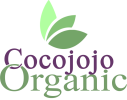- Empty cart.
- Continue Shopping
How to Work with a Skincare Contract Manufacturer from Start to Finish
How to Work with a Skincare Contract Manufacturer from Start to Finish
Partnering with a skincare contract manufacturer allows brands to scale efficiently, access expert resources, and bring high-quality products to market. However, collaborating successfully from concept to final product requires clear communication, careful planning, and attention to detail. Here’s a comprehensive guide on how to work with a skincare contract manufacturer from start to finish, ensuring a smooth and effective production process.
Why Choose a Skincare Contract Manufacturer?
Working with a contract manufacturer offers several benefits for skincare brands, including:
- Access to Expertise: Utilize the knowledge of experienced chemists and formulators to create high-quality products.
- Cost Efficiency: Save on overhead costs, equipment, and labor by outsourcing production.
- Scalability: Increase production capacity to meet demand without a significant upfront investment.
- Focus on Core Activities: Free up your time to focus on marketing, branding, and business development while the manufacturer handles production.
Step-by-Step Guide to Working with a Skincare Contract Manufacturer
1. Define Your Product Goals and Vision
- Why It’s Important: A clear product vision helps you find the right manufacturer and communicate your expectations. It ensures the final product aligns with your brand’s identity.
- How to Do It: Identify the type of products you want to create (e.g., creams, serums, cleansers). Consider target skin concerns, ingredient preferences, and desired outcomes. Decide on your brand values, such as sustainability, cruelty-free, or organic, to guide your formulation.
2. Research and Choose the Right Manufacturer
- Why It’s Important: Not all manufacturers have the same capabilities or expertise. Choosing the right partner is crucial for product quality and long-term success.
- How to Do It: Research manufacturers who specialize in skincare and match your brand’s needs. Look for certifications like GMP (Good Manufacturing Practices) or ISO standards to ensure quality. Ask for references, case studies, and sample products to evaluate their experience. Consider factors like production capacity, lead times, and pricing.
3. Initial Consultation and Proposal
- Why It’s Important: The initial consultation helps you understand the manufacturer’s capabilities, processes, and costs. It’s also a chance to discuss your vision and gather essential information.
- How to Do It: Schedule a meeting with potential manufacturers to discuss your product concept, ingredients, and packaging requirements. Share your brand goals, target audience, and expected order volumes. Request a detailed proposal that includes costs, timelines, and production steps.
4. Formulation and Product Development
- Why It’s Important: Developing a formula that aligns with your vision is key to product success. The formulation process involves creating and testing prototypes until the desired product is achieved.
- How to Do It: Collaborate with the manufacturer’s formulation team to create a product sample. Provide feedback on texture, scent, performance, and ingredient preferences. Test multiple iterations until the formula meets your expectations. Consider conducting in-house or third-party performance testing to validate product claims.
5. Select Ingredients and Finalize the Formula
- Why It’s Important: Choosing the right ingredients impacts the product’s safety, effectiveness, and brand identity. Finalizing the formula sets the foundation for large-scale production.
- How to Do It: Work with the manufacturer to choose high-quality, ethically sourced ingredients. Decide on active ingredients, preservatives, and any fragrance or colorants. Conduct stability testing to ensure the formula maintains quality over time. Finalize the formula only when you are completely satisfied with the results.
6. Packaging Design and Sourcing
- Why It’s Important: Packaging affects the product’s appearance, usability, and environmental impact. The right packaging enhances the brand’s appeal and protects the product.
- How to Do It: Choose packaging that aligns with your brand’s style and sustainability goals. Consider factors like size, material, design, and functionality. Ensure the packaging is compatible with the product and meets legal labeling requirements. Collaborate with the manufacturer to source packaging materials or work with a third-party supplier.
7. Production Sample and Final Approval
- Why It’s Important: A final production sample is a true representation of the finished product. Approving the sample minimizes the risk of issues during mass production.
- How to Do It: Request a final production sample before mass manufacturing. Test the product to confirm that it meets your quality standards, including texture, scent, packaging, and performance. Provide feedback and request any necessary changes before giving final approval.
8. Negotiate and Sign a Manufacturing Agreement
- Why It’s Important: A manufacturing agreement outlines the terms of the partnership, including responsibilities, timelines, costs, and quality standards. It protects both parties and ensures a smooth production process.
- How to Do It: Draft a detailed contract that includes production costs, payment terms, timelines, order quantities, quality standards, intellectual property rights, and confidentiality clauses. Review the agreement with a legal expert before signing. Ensure that both parties understand their obligations and have clear expectations.
9. Production and Quality Control
- Why It’s Important: Quality control ensures that every product batch meets your standards. It maintains consistency and prevents costly recalls.
- How to Do It: Set clear quality control guidelines, including testing protocols for ingredients, stability, microbial safety, and packaging. Schedule quality checks at different production stages to catch issues early. Work with the manufacturer to address any deviations from the standards promptly.
10. Labeling, Compliance, and Certifications
- Why It’s Important: Proper labeling ensures regulatory compliance and provides customers with accurate information. Certifications add credibility and appeal to conscious consumers.
- How to Do It: Make sure the product label includes a complete ingredient list, usage instructions, safety warnings, and expiration dates. Verify that the product complies with local and international regulations (e.g., FDA, EU Cosmetics Regulation). Apply for relevant certifications, such as organic, cruelty-free, or vegan, to support your brand’s claims.
11. Mass Production and Final Product Inspection
- Why It’s Important: Mass production is the final step before the product reaches consumers. A final inspection ensures that everything is in order before distribution.
- How to Do It: Monitor the mass production process to ensure it follows the approved formula and packaging specifications. Conduct a final product inspection, including testing for consistency, quality, and packaging integrity. Approve the batch for distribution only when it meets your quality standards.
12. Shipping, Distribution, and Inventory Management
- Why It’s Important: Efficient distribution ensures that products reach the market on time and in perfect condition. Proper inventory management helps maintain stock levels and prevents shortages.
- How to Do It: Work with your manufacturer to establish a distribution plan that aligns with your business needs. Choose reliable shipping methods to minimize transit damage. Use inventory management software to track stock levels, monitor sales, and plan for future orders.
13. Gather Feedback and Plan for Future Production
- Why It’s Important: Consumer feedback helps identify strengths and areas for improvement. It guides future product development and ensures customer satisfaction.
- How to Do It: Gather feedback from customers, retailers, and distributors after the product launch. Analyze sales data and reviews to assess product performance. Use this information to refine your next production batch or introduce new products.
Common Challenges in Working with a Skincare Contract Manufacturer and How to Overcome Them
- Communication Gaps: Miscommunication can lead to delays or errors. Maintain regular communication with the manufacturer through scheduled updates and detailed project briefs.
- Quality Issues: Inconsistent quality can damage your brand’s reputation. Set clear quality control standards, conduct regular audits, and perform random batch tests.
- Delays in Production: Production delays can disrupt your timeline. Plan buffer periods in your schedule, monitor progress, and maintain open communication with the manufacturer.
- Cost Overruns: Unexpected costs can impact your budget. Get detailed quotes upfront, negotiate fixed prices, and outline additional costs in the agreement.
Benefits of Partnering with a Reliable Skincare Contract Manufacturer
- Consistent Product Quality: An experienced manufacturer maintains consistent product quality, ensuring customer satisfaction.
- Faster Time to Market: A contract manufacturer speeds up the production process, allowing you to launch products more quickly.
- Access to Resources: Manufacturers have access to advanced equipment, specialized ingredients, and industry experts.
- Lower Overhead Costs: Outsourcing production reduces costs associated with facilities, equipment, and staffing.
Conclusion: How to Work with a Skincare Contract Manufacturer from Start to Finish
Working with a skincare contract manufacturer requires a strategic approach, clear communication, and a strong partnership. By following these steps, from defining your product goals to final product distribution, you can create high-quality skincare products that meet your brand’s standards. A reliable manufacturer helps you navigate challenges, scale production, and bring your skincare vision to life.
Interested in creating your own product line? Explore our private labeling options and bring your brand vision to life. Fill out our Form to get started.
Discover more about our services by visiting our website.

